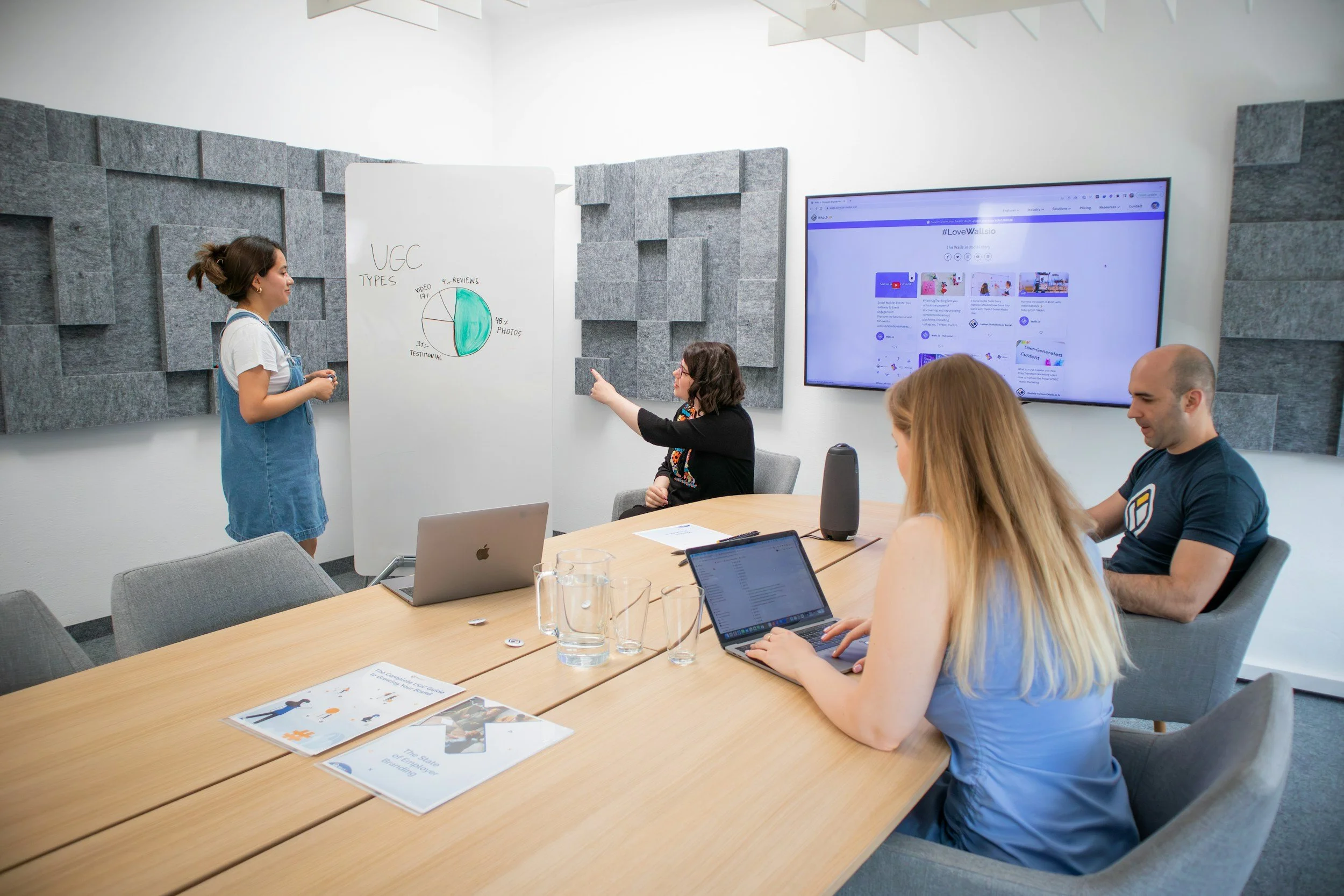eLearning Blog
Peer-to-Peer Learning: Unlocking the Power of Shared Knowledge
Peer-to-Peer Learning: Unlocking the Power of Shared Knowledge. Harnessing Peer-to-Peer Learning: Enhancing Team Collaboration and Knowledge Sharing. Peer-to-peer learning is an effective strategy to elevate engagement, boost confidence, and facilitate knowledge exchange among team members.
How Modern Learning Drives Product Understanding
How Modern Learning Drives Product Understanding. Smarter Product Training: New Approaches for Modern Teams. Product training is no longer just about facts and features—it’s about connection, context, and real-world relevance.
What’s New in Team Training: 8 Key Trends to Know
What’s New in Team Training: 8 Key Trends to Know. 8 Essential Tips: Workplace Learning Trends You Need to Know. In today’s fast-changing work environments, staying ahead means more than launching new products or tools—it requires equipping your teams with the knowledge, adaptability, and confidence to deliver meaningful results.
Making Product Training Engaging: Six Practical Tips
Making Product Training Engaging: Six Practical Tips. Building Product Knowledge Through Interactive Learning. Product knowledge is one of the most effective tools a team can have—and we help our clients turn it into a true differentiator.
Nano-Learning: A Smarter Way to Train Teams at Scale
Nano-Learning: A Smarter Way to Train Teams at Scale. Keeping Teams Up-to-Date with Microlearning: Fast, Focused, and Flexible. As organizations evolve rapidly, so do the demands on their teams. Traditional training methods often lag behind the pace of change.
Maximizing Learner Involvement with Effective Audio Techniques
Maximizing Learner Involvement with Effective Audio Techniques. Maximizing Engagement by Integrating Audio Elements. Harnessing the power of audio to enhance engagement is recognized as an effective method to support learning outcomes.
Enhancing the Learning Experience Through Instructional Design
Enhancing the Learning Experience Through Instructional Design. Optimizing Learning Experiences with Instructional Design Techniques. Instructional design is a powerful approach and method for developing and enriching learning experiences.
The significance of social learning and how a forum supports knowledge sharing
The significance of social learning and how a forum supports knowledge sharing.The Role of Social Learning and Forums in Skill Development. Social learning allows individuals to expand their knowledge through observation, interaction, and shared experiences. Unlike trial-and-error learning, this approach promotes faster and more efficient learning by building on the insights and behaviors of others.
Learning Together: The Power of Collaboration
Learning Together: The Power of Collaboration. How to Build a Collaborative Learning Space for a Stronger Team. Working well together makes all the difference. When you create a learning environment where everyone shares ideas and knowledge, teams become stronger, more creative, and more productive.
Leveraging Expertise from a Subject Specialist
Leveraging Expertise from a Subject Specialist. Bringing Knowledge to Life: How to Partner with Subject Experts for Better eLearning. Creating a great eLearning course isn’t just about using the right tools or flashy graphics—it’s about delivering the right knowledge in the right way.
Why Video-Based Learning is Essential for Modern eLearning
Time to Shine: Revolutionizing Online Training with Video-Based Learning. Video-based learning has emerged as one of the most powerful tools in modern online training and eLearning strategy, offering a dynamic and visually engaging way to deliver knowledge.
The Power of Kinetic Learning in Modern Skill Development
The Power of Kinetic Learning in Modern Skill Development. Kinetic Learning: A Movement-Based Approach to Real-World Learning. Kinetic learning shifts the learning experience from passive consumption to active participation, encouraging learners to engage directly with content through experiential techniques.
Applying Cognitive Science to Effective eLearning Design
Applying Cognitive Science to Effective eLearning Design.The Cognitive Foundations of Learning. Creating impactful eLearning programs begins with a deep understanding of how individuals learn and process information.
Building Skills Through Practice-Oriented Learning Approaches
Building Skills Through Practice-Oriented Learning Approaches. Using Activity-Based Techniques to Strengthen Workforce Training. In modern workplace learning, static, lecture-based training often fails to equip individuals for real-world performance.
Rapid Skill Development for Specialized Product Training
Rapid Skill Development for Specialized Product Training. Boosting Competence Quickly: Strategies for Accelerated Employee Development. Rapid learning focuses on delivering essential knowledge and skills quickly and efficiently, whether for individual employees or entire teams.
6 Inspiring Concepts for Next-Level Online Learning
6 Inspiring Concepts for Next-Level Online Learning. Training That Connects: Inspiring Digital Learning Methods. Effective training isn’t just about delivering content — it’s about creating meaningful learning experiences.
6 Key Approaches to Boost Training Effectiveness
6 Key Approaches to Boost Training Effectiveness. Mastering Team Development: 6 Approaches to Excellence in Training. In today’s competitive landscape, team members serve as vital representatives who influence every customer interaction.
What Digital Training Programs Can Adopt from Social Networks
What Digital Training Programs Can Adopt from Social Networks. From Social Platforms to Skill Building: Rethinking Training Models. Storytelling, visual content, and ongoing renewal are key drivers behind successful social platforms — and these same elements can transform digital learning.
The Impact of Instructor-Facilitated Learning in Workforce Training
The Impact of Instructor-Facilitated Learning in Workforce Training. Why Instructor-Led Training Remains Essential in Workforce Education. In the broad spectrum of training methodologies, the importance of instructor-led training (ILT) can sometimes be underestimated.
The Power of Learning Experience Design in Corporate Training
Benefits of Learning Experience Design. Learning Experience Design (LXD) plays a pivotal role in improving the effectiveness and engagement of modern training programs. LXD goes beyond traditional instructional design by emphasizing personalization, interactivity, and engagement.




















